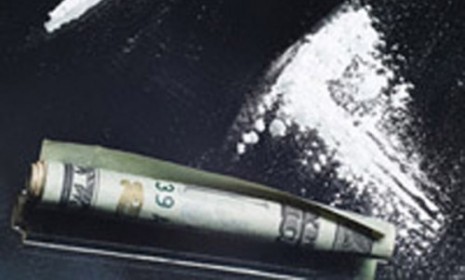Did drug money save our economy?
Provoking controversy, the U.N.'s drug czar says that billions in illegal drug cash saved the world's financial system from collapse

A free daily email with the biggest news stories of the day – and the best features from TheWeek.com
You are now subscribed
Your newsletter sign-up was successful
In an astounding announcement, the head of the U.N.'s Office on Drugs and Crime, Antonio Maria Costa, has told The Guardian that world banks began laundering illegal drug money to stay afloat during last year's financial crisis, when other sources of lending had dried up. Costa says he's seen evidence that $352 billion of criminal cash was absorbed by the global financial system. This evidence is "understood," says The Guardian, to come from officials in the U.S., Great Britain, Italy, and Switzerland. Is Costa telling the truth—or just making a strangely reckless claim?
Such a win-win deal would make perfect sense: "Hidden in the euphemisms" of Costa's words, says Charlie Stross in his Autopope blog, is the reality that drug cartels and other criminal gangs, eager to launder their money, went on "a $352 billion asset-buying spree" — and that regulators turned a blind eye to this because "the alternative was to allow the banks to collapse." Only problem: Now that criminals around the world have all this "legit" wealth, what will they do with it?
"What are the long-term consequences ...?"
The Week
Escape your echo chamber. Get the facts behind the news, plus analysis from multiple perspectives.

Sign up for The Week's Free Newsletters
From our morning news briefing to a weekly Good News Newsletter, get the best of The Week delivered directly to your inbox.
From our morning news briefing to a weekly Good News Newsletter, get the best of The Week delivered directly to your inbox.
Costa is just trying to get attention: I'd believe the "suspiciously precise $352 billion number," says Felix Salmon in Reuters, if we had more evidence than Costa's words, especially since Costa seems prone to talking up the importance of his office and making outlandish statements — consider his past remark that Nicholas Cage "will help us achieve security and justice for all." So for now "I'm filing this one under 'empirically-dubious publicity-seeking.'"
"Drug money and the financial crisis"
The claim is overblown, but plausible: Predictably, the banking industry issued a "huffy" denial, says Yves Smith in Naked Capitalism. But while "central banks no doubt did provide more firepower" than drug cartels to save the banking industry, it may well "pan out that laundered funds were a significant factor." If it's "a matter of survival," what bank wouldn't dabble in money laundering?
"Drug money saved banks in global crisis?"
A free daily email with the biggest news stories of the day – and the best features from TheWeek.com
Isn't it fortunate we never legalized certain drugs? "We libertarians can rejoice at the irony" of all this, says David Zincavage in Never Yet Melted. On one hand, you can view drugs as a "victimless crime" which clearly ought to be legalized. "On the other hand, of course, if drugs were legal, the massive profits that produced the vitally-needed liquid capital" that ultimately saved the financial system from collapse would not have been available.
-
 The Olympic timekeepers keeping the Games on track
The Olympic timekeepers keeping the Games on trackUnder the Radar Swiss watchmaking giant Omega has been at the finish line of every Olympic Games for nearly 100 years
-
 Will increasing tensions with Iran boil over into war?
Will increasing tensions with Iran boil over into war?Today’s Big Question President Donald Trump has recently been threatening the country
-
 Corruption: The spy sheikh and the president
Corruption: The spy sheikh and the presidentFeature Trump is at the center of another scandal